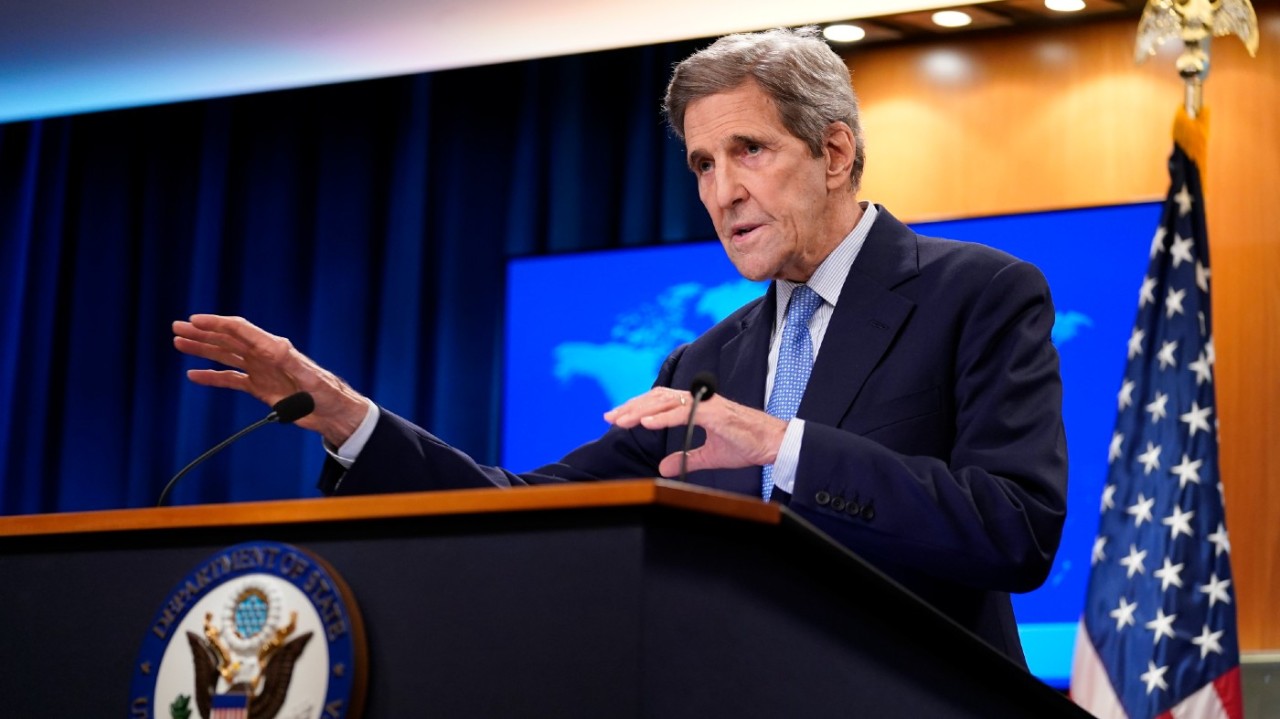
U.S. climate envoy John Kerry is in talks with external partners to use funds from major companies to sponsor developing countries’ transition away from fossil fuels, a source confirmed to The Hill.
A person familiar with the discussions said Kerry will announce further details at an event at the upcoming COP27 United Nations climate summit, emphasizing that the proposal is for a partnership rather than a specific initiative of the U.S. government. Initial reporting by The Financial Times, which the person familiar confirmed to The Hill is “overall” accurate, would involve an independent, to-be-determined accrediting organization to certify the credits.
“This isn’t the launch of an entity, it’s the discussion of a framework which is intentional to allow time to work with all stakeholders next year to develop the details and ensure just transition safeguards and environmental integrity provisions,” a person familiar told The Hill. “The framework would be a program to scale up private finance to accelerate the clean energy transition in developing countries, through the creation and sale of high-quality carbon credits.”
Kerry broached the idea as early as October, saying, “One of the things we’re looking at is the possibility of the private sector, in effect, being enticed to the table.” The funds in question, he said, could go directly to building renewable infrastructure and phasing out coal plants in the countries in question. “I hope perhaps even by Sharm el-Sheikh we might be in a position to outline that,” Kerry added, referencing the Egyptian city hosting the climate summit this week.
The former secretary of state has frequently emphasized the need for the west to aid developing nations in the transition off fossil fuels rather than expecting them to handle it on their own. Last week he told CNN’s Christiane Amanpour “We have to bring [other major emitters] to the table. We have to raise ambition … but developing countries, even some big ones like India, can’t do this on their own.”
Carbon credits have been frequently touted as a potential means for the private sector to partner in reducing greenhouse gas emissions, the main cause of climate change. However, the concept has also been criticized by some as a method of greenwashing, or inflating the environmental benefit of a business practice.
A 2020 analysis by Trove Research and Mark Maslin of University College London indicated that the carbon credit market currently includes older credits that were created under looser requirements and have no meaningful impact on greenhouse gases.




